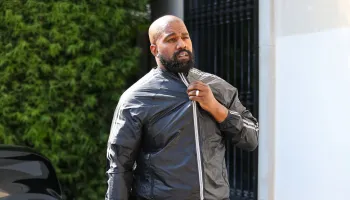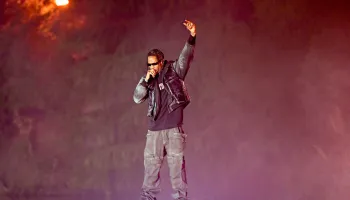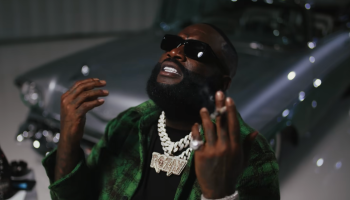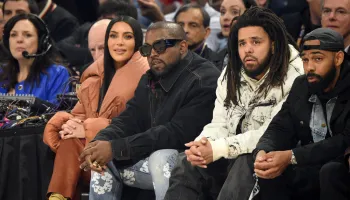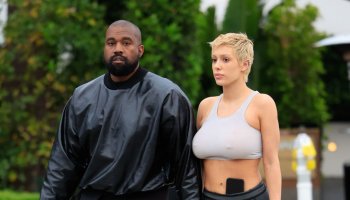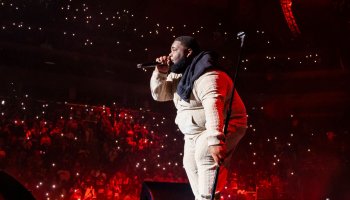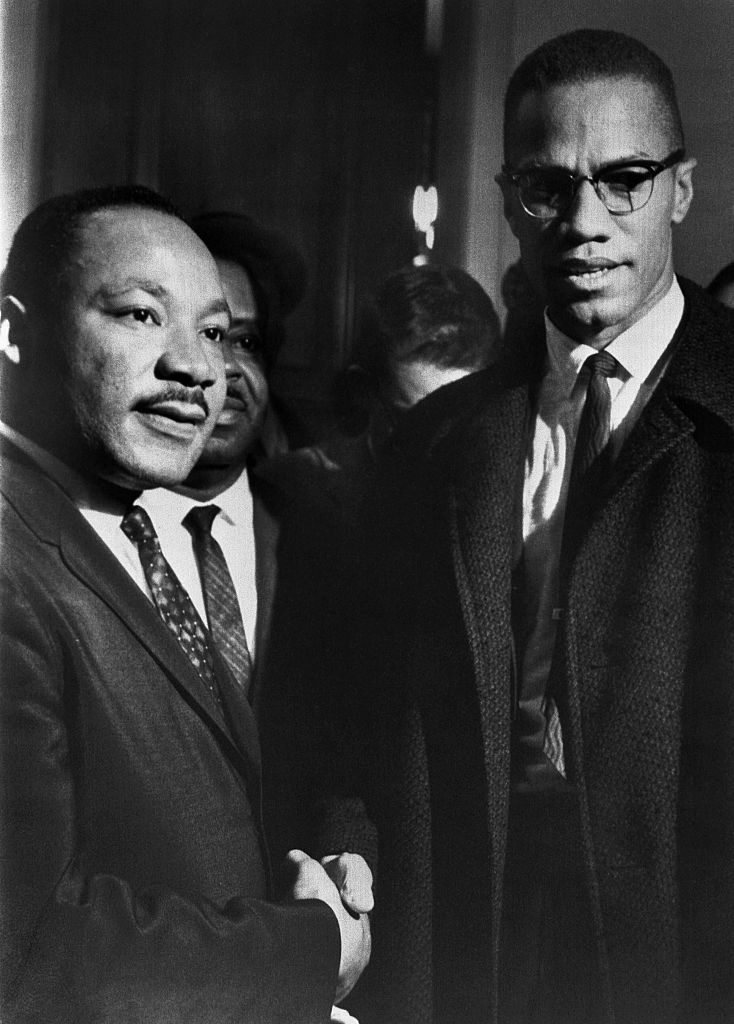
Source: Bettmann / Getty
The great divide between the Rev. Martin Luther King Jr. and Malcolm X is one of many tragic endings in Black History. Two men, with different methods of approaching a common goal, whose reputations remain to this day enshrined in their earlier viewpoints and not the evolution of their ideals.
King, the great mobilizer, fervent orator and a champion of the Civil Rights Movement, bended the ears of Presidents and politicians in his push to end segregation and enacting voting rights for Black Americans.
Malcolm was charming yet passionate in his approach. He joined the Nation of Islam while still in prison and moved up the ranks to become the face of the organization after his release.
King was a committed proponent of nonviolence. He believed that peaceful protest and change in legislation offered the keys to equality. Malcolm saw King’s “violence begets violence” theory taught Blacks to be “defenseless in the face of one of the most cruel beasts that has ever taken a people into captivity.” He encouraged Black Americans to protect themselves “by any means necessary.”
Despite their differences, Malcolm wanted to meet with King. Believing that Black leaders should be able to “submerge their minor differences to seek a common solution to a common problem caused by a Common Enemy,” he invited King to speak at a rally with him in Harlem in 1963.
King didn’t respond to the invitation, but the two finally came face to face in Washington D.C. during a 1964 Senate hearing. Though immortalized in photos, the moment was actually quite brief. King and Malcolm exchanged pleasantries before going their separate ways.
It’s easy to forget that Malcolm and MLK were relatively young men under substantial pressure to say and do the right things for the respective groups that they led. Because their belief systems progressed, one can only imagine that their viewpoints would have naturally aligned had they lived long enough to become allies.
Meanwhile, Malcolm began questioning the motives of Elijah Muhammad, his mentor and leader of the NOI. His relationship with the Nation crumbled, and he split with the organization in March 1964. He told Ebony magazine that the Black Muslims would have to kill him. “They can’t afford to let me live. I know where the bodies are buried and if they press me, I’ll exhume some.”
After his split with the Nation, Malcolm converted to Orthodox Islam, embarked on the Muslim pilgrimage to Mecca and changed his name to El Hajj Malik El Shabazz. His travels through Mecca and Africa affected his perspective. Upon returning to the States, he spoke openly about the “brotherhood” that he felt among Muslims of all races.
Malcolm saw racism in America not as a violation of civil rights, but a human rights violation that needed to be addressed by the United Nations. Although he believed that Islam could be a tool to dismantle racism in America, he also understood that Black America’s issues were beyond religion. He founded the Organization of Afro-American Unity, a non-religious collective designed to “bring about a conditions that will guarantee respect and recognition” for Black Americans, as he explained in a January 1965 interview with Front Page Challenge.
During the interview, he clarified that his issue with MLK wasn’t personal. “If his approach would bring about what the Black man in America needs to completely eliminate the problem that we have, I would say well and good. But I very much doubt that anyone who adopts the approach that Martin Luther King has been teaching to our people can point to any meaningful gains that has actually served to solve the problem.”
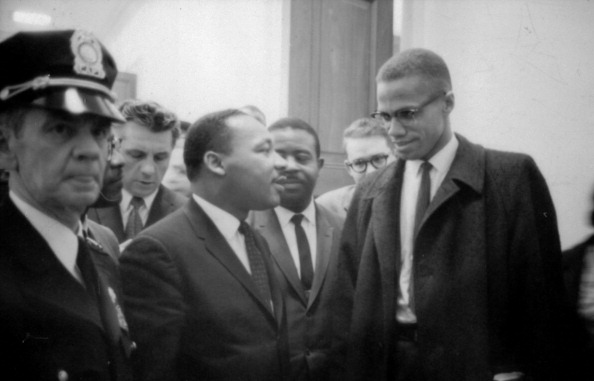
Source: UniversalImagesGroup / Getty
Malcolm made it clear that he was against “any form of racism and segregation” and didn’t advocate for Black people to initiate indiscriminate aggressions against whites. Later in the interview, Malcolm addressed his departure from the NOI:
“Elijah Muhammad taught his followers that the only solution was a separate state for Black people. As long as I thought he genuinely believed that, I believed in him and believed in his solution. But when I began to doubt that he himself believed that was feasible, and I saw no kind of action designed to bring it into existence, I turned in a different direction.”
Three weeks after the interview aired, Malcolm was assassinated in front of his wife and children while giving a speech at Harlem’s Audubon Ballroom. Min. Louis Farrakhan, Malcolm’s successor and former mentee, wrote that Malcolm was “worthy of death” for turning against the NOI. (In 1993, Farrakhan eluded to Malcolm’s murder referencing a “traitor” who was subsequently handled by the Nation. Years later in an interview with 60 Minutes, Farrakhan acknowledged that he “may have been complicit” in words that he spoke leading up to Malcolm’s murder. “I acknowledge that and regret that any words that I said caused the loss of life of a human being.” Last year, Farrakhan denied involvement in the assassination and accused the “wicked media” of spreading a false narrative).
King called Malcolm’s assassination a “result of an internal conflict within the Black nationalist movement.” He also suggested that a “conference of good will between Black nationalist leaders” would help rectify the division.
Privately, King expressed his condolences in a telegram to Malcolm’s wife, Betty Shabazz. “While we did not always see eye to eye on methods to solve the race problem, I always had a deep affection for Malcolm and felt that he had the great ability to put his finger on the existence and root of the problem,” King wrote. “He was an eloquent spokesman for his point of view and no one could honestly doubt that Malcolm had a great concern for the problems that we face as a race.”
RELATED: Black History Month Beef: Booker T. Washington vs. W.E.B. DuBois
Malcolm’s death left an unfilled void in the movement. Meanwhile, King pressed forward. He met with President Lyndon B. Johnson’s Administration in March of 1964 to request an injunction to protect demonstrators at the upcoming march from Selma to Montgomery, AL. The march was initially thwarted due to police viciously beating demonstrators on what became known as “Blood Sunday.” Although King did not attend that particular march, he led additional demonstrations in Selma in March of 1965. The Voting Rights Act was enacted months later, after much pushback from lawmakers.
In his last few years of his life, King — a native of Atlanta who had centered much of his work in the South — took his fight for equality to the Northern states. He became involved in the Chicago open housing movement and vocally opposed the Vietnam War labeling the U.S. “the greatest purveyor of violence in the world today.” In 1967, King and the Southern Christian Leadership Conference organized the Poor People’s Movement in an effort to guarantee quality housing, education and employment for the poor. His opposition against the war turned many whites against him. The FBI continued its obsession with unjustly surveilling and harassing King, from wiretapping his phone to falsely depicting him as a communist enemy. One year before his death, King spoke with NBC News about the “new phase of the struggle,” and the white backlash that he received in the struggle for “genuine equality.”
“I see the white backlash as a continuation of the same ambivalence and vacillation of white America. The whole question of racial injustice has existed since the founding of our nation.
“Many of the people who supported us in Selma and Birmingham were really outraged about the extremist behavior towards Negroes but they were not at that point and they are not now committed to genuine equality for Negroes. It’s much easier to integrate a lunch counter than it is to guarantee an annual income, for instance…to get rid of poverty for Negroes and all poor people. It’s much easier to integrate a bus than it is to make genuine integration a reality and quality education a reality in our schools.
“The vast majority of white Americans will go but so far. It’s a kind of installment plan for equality. They’re always looking for an excuse to go so far.”
King was assassinated at the Loraine Motel in Memphis on April 4, 1968. He traveled to the city to support a strike of Black sanitation workers. The night before his assassination, King delivered his infamous “I’ve been to the mountain top” speech. The eery discourse seemed as if King was at peace with the thought of dying.
“Like anybody, I would like to live a long life,” he told a crowd at the Mason Temple. “Longevity has its place, but I’m not concerned about that now. I just want to do God’s will and he’s allowed me to go up to the mountain and I’ve looked over, and I’ve seen the promised land. I may not get there with you. But I want you to know tonight, that we, as a people, will get to the promised land.”
RELATED: Black History Month Beef: Zora Neale Hurston vs. Richard Wright








